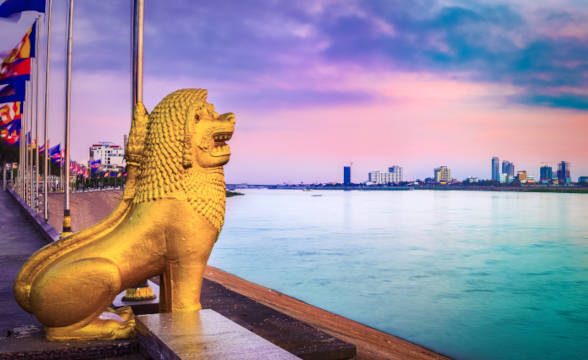Cambodia continues to be an international pariah when it comes to doing business. The country, which once thought it can shrug off criticism about its presence on the Financial Action Task Force’s (FATF) money laundering grey list may finally be wakening up to the fact that its international reputation matters a lot for the long-term sustainability of its economy.
Cambodia’s Bad Reputation Haunts Its Economic Opportunities
Even tourism, one of Cambodia’s main sources of revenue, is now taking a serious hit due to the country’s inclusion on a Human Trafficking blacklist which continues to undermine its international reputation. This admission comes not from the US State Department, which previously warned American companies to avoid doing business in Cambodia, but from the country’s deputy prime minister, Sar Kheng.
Speaking to The Khmer Times, Kheng acknowledged that Cambodia’s bad name has made it far more difficult for the country to conduct business, attract investors, and even solicit back tourists. Horror stories of human trafficking taking advantage of workers, and even some stranded tourists during the pandemic, made headlines in media both in the region and globally.
People from mainland China, Vietnam, and other Southeast Asia countries have been lured by illegal gambling outfits that promised cushy jobs only to subject the job seekers to inhumane working conditions and slavery. The exact numbers of people held against their will in Cambodia’s seedy underbelly gambling industry are not known, but some say they run in the hundreds. Most recently, Cambodia freed 30 Chinese nationals.
In a similar case, 40 foreign nationals swam across the border to Vietnam after escaping from the Golden Phoenix Entertainment Casino in Koh Thom. Macau and Hong Kong authorities have warned their citizens to avoid Cambodia as a travel destination and well-heeled travelers from elsewhere are no longer interested in risking it. As a result, casinos remain mostly empty and there is a severe shortage of workers to fill basic jobs in the gambling industry.
All of this has cut the country from important sources of revenue which makes it hard to attract overseas investors and tourist dollars. Kheng is aware of that, but what he and the government do next is even more important.





